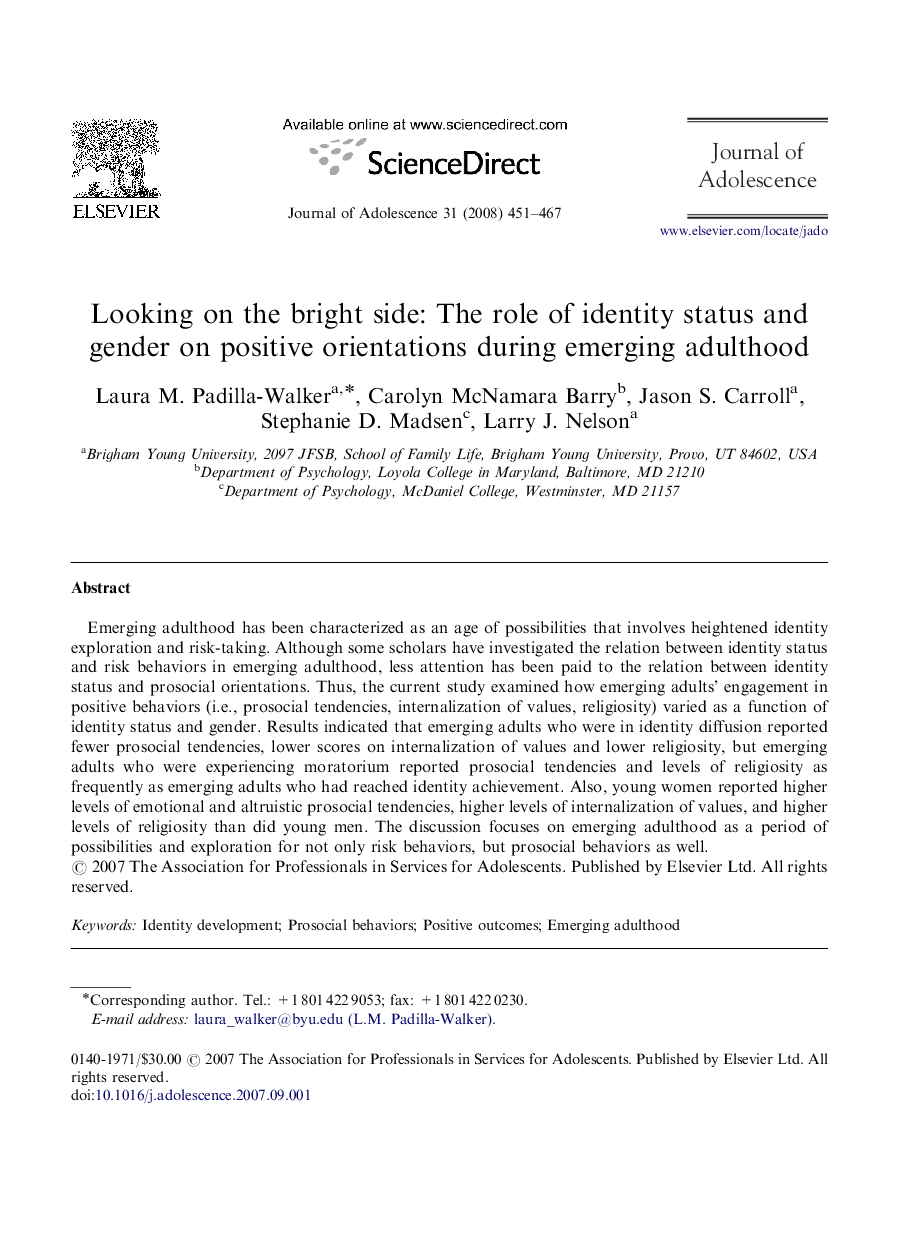| Article ID | Journal | Published Year | Pages | File Type |
|---|---|---|---|---|
| 881345 | Journal of Adolescence | 2008 | 17 Pages |
Emerging adulthood has been characterized as an age of possibilities that involves heightened identity exploration and risk-taking. Although some scholars have investigated the relation between identity status and risk behaviors in emerging adulthood, less attention has been paid to the relation between identity status and prosocial orientations. Thus, the current study examined how emerging adults’ engagement in positive behaviors (i.e., prosocial tendencies, internalization of values, religiosity) varied as a function of identity status and gender. Results indicated that emerging adults who were in identity diffusion reported fewer prosocial tendencies, lower scores on internalization of values and lower religiosity, but emerging adults who were experiencing moratorium reported prosocial tendencies and levels of religiosity as frequently as emerging adults who had reached identity achievement. Also, young women reported higher levels of emotional and altruistic prosocial tendencies, higher levels of internalization of values, and higher levels of religiosity than did young men. The discussion focuses on emerging adulthood as a period of possibilities and exploration for not only risk behaviors, but prosocial behaviors as well.
